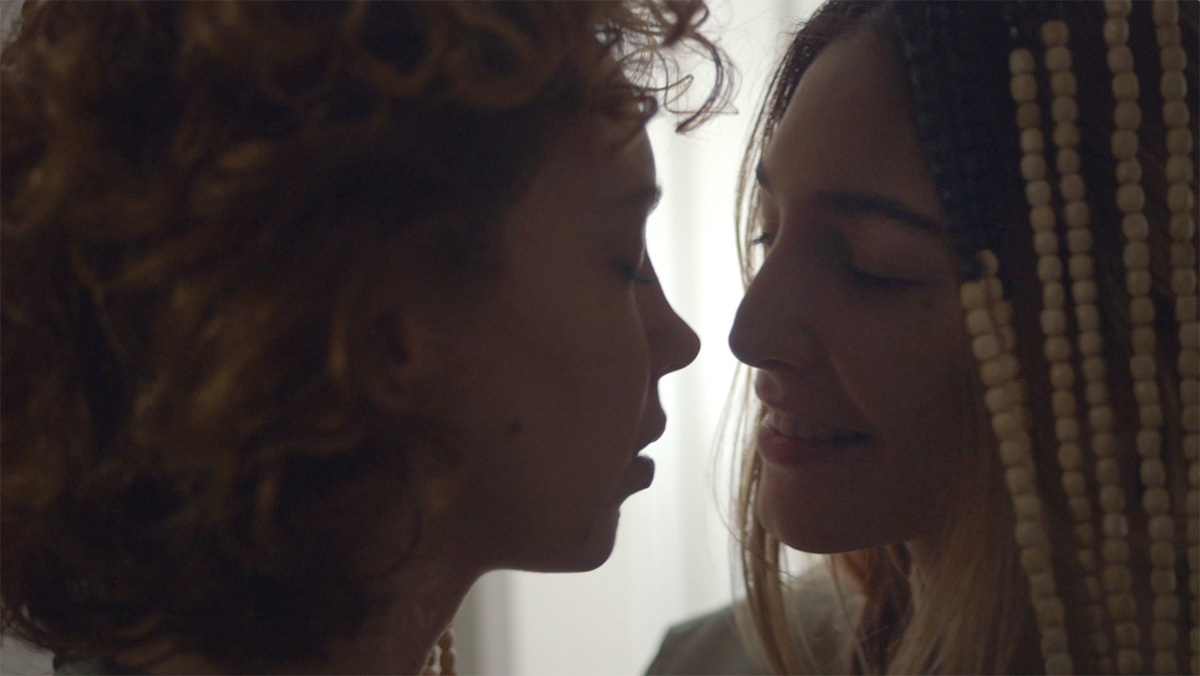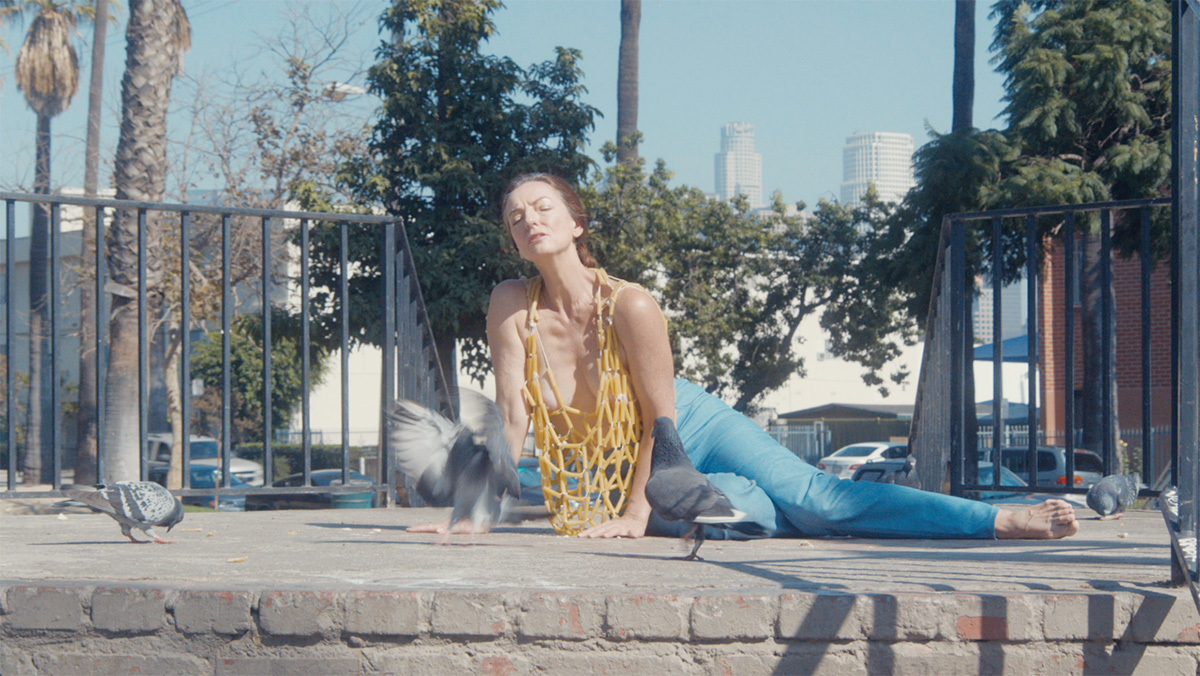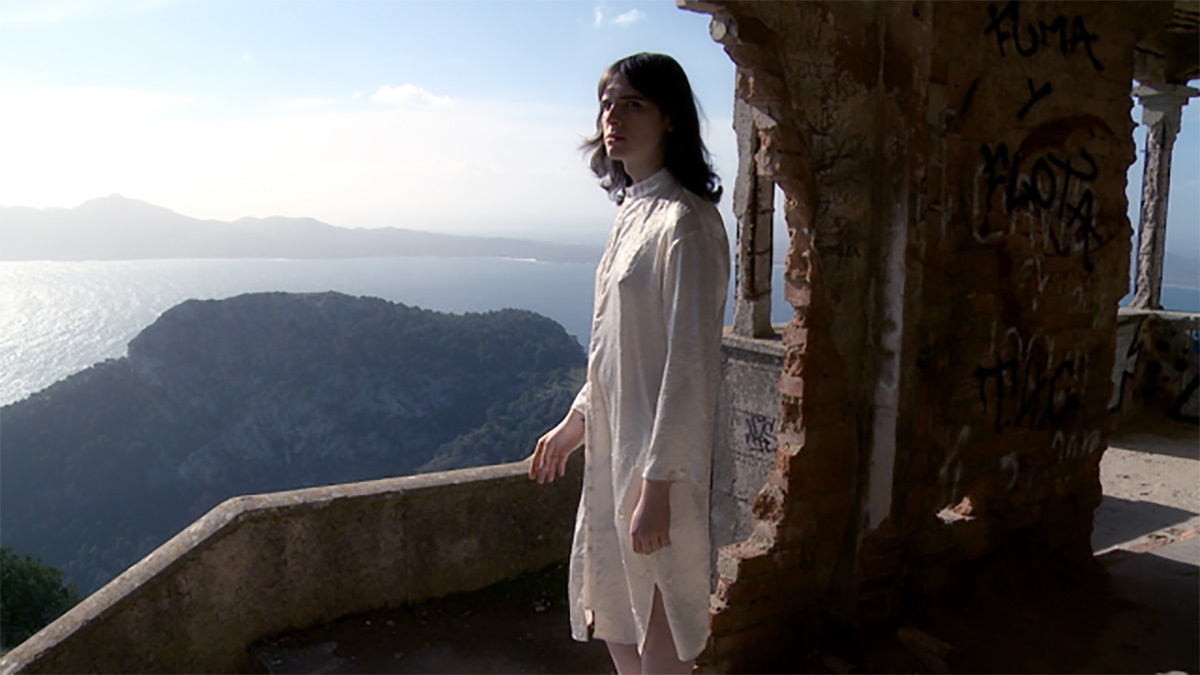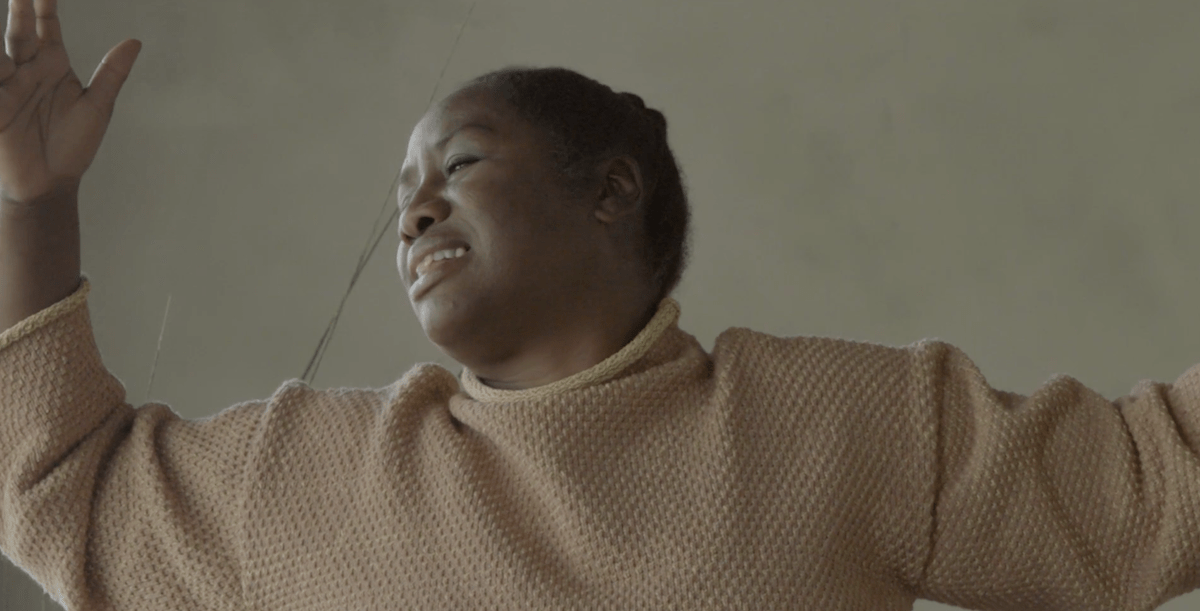It’s been five years since Mike Eckhaus and Zoe Latta launched their brand into the world from the Lower East Side of New York. Yet in this short amount of time Eckhaus Latta managed to get a sizeable and incredibly loyal crowd of admirers on the both sides of the Atlantic, and both coasts of America, too. It’s definitely about the clothes they design — tactile, textured, unconventional — but also about the world they created around it. On their creative journey, they had numerous collaborators, but a special place is reserved for director Alexa Karolinski who has worked on videos for the brand since its first collection. Together, they challenged the notion of what an emerging label could be — and also took on much larger questions of who we are in the strange and hostile world of today.
Born and raised in Germany, Karolinski met Eckhaus and Latta in New York just after they’d produced their first collection. “It’s hard to believe that five years ago fashion video was actually still pretty new for online. It was a special time because when we started our conversation it wasn’t just about what shall we do for the next video, but what should video be and how do we develop a video language together,” Karolinski remembers. “Every video we’ve made since and we’re still making is sort of this ongoing conversation.”
One of the first films they made together, titled Uniform, focused on a group of senior citizens who for the past 30 years had gathered each day in Chinatown’s Columbus Park to practice luk tung kuen, a specialist Chinese form of exercise. Five years later, the collaboration is still thriving, and often draws on a similar ideas of ritual, empathy, community, and the role of clothes in all of the above. Smile portrayed a group not unlike a beautiful utopian cult engaging in dancing, kissing, crying, and smiling. Family showed a community of kids engaging in domestic rituals like braiding each other’s hair and watching TV. In Island, Hari Nef and Martine Gutierrez were two figures dressed in translucent white, clinging to each other on the edge of a beautiful rock. The universe Karolinski and Eckhaus Latta constructed together is definitely bizarre, but is rooted in our day to day existence more than it might seem.
“Mike and Zoe come from an art school background and they approach their work like artists — it’s never just about anything superficial,” Karolinski says. “And because we’re also friends and we hang out a lot, it often happens that we’d be at a party or having dinner, and suddenly we’d notice a small detail and decide to think about it for our next video. Sometimes it’s the most random stuff.”

The latest video they worked on together grew from something small as well: Latta and Karolinski were at the farmer’s market shopping for groceries and spotted a woman singing opera. “She was so beautiful and inspiring and powerful. We thought it would be great to put her in an Eckhaus Latta sweater and have her sing. Now, in the current political climate, we felt it’s time to highlight people who inspire us, and this woman was just so beautiful and inspiring — we wanted her to be able to get the kind of attention that all the annoying things in the media get. She’s not a celebrity, she’s not famous — but we feel she should be,” Karolinski explains.
“Our work together has always been about the things we are reacting against,” she adds. “Right now we talk a lot about the fucked up political situation in US, and we’re all very anxious about what’s happening and what’s going to happen, so we talk a lot about what is our role — and for Mike and Zoe how political is it ok to be in this fashion video context.”

In her artistic practice, Karolinski is interested in family, community and, above all, empathy — on both personal and political levels. She grew up in a close-knit Jewish community in Berlin, and years later, having relocated to Los Angeles, she still explores the way people relate to each other and how could it help us survive the harsh alienating modernity. Apart from her work for Eckhaus Latta, she explored these ideas in Army of Love, a film produced last year for Berlin biennale in collaboration with Ingo Niermann. Army of Love is about a fictional organized community “where you could have love and give love, and which could help people construct their identities.” The fictional world was based on real interviews on the topics of love, sex, intimacy, and disability — and then captured on camera with the help of a spa and clothes by Hood by Air.
“I really believe that, in this weird political situation, communities are going to become more important than ever,” Karolinski adds. “We have to turn to the communities of loved ones and people we can identify with, because in the near future we’re probably not going to be able to count on governments or systems.”

Through their continuous collaboration Karolinski and Eckhaus Latta also promote ideas of interdisciplinary creativity by talking the best from the worlds of art and fashion, and creating something authentic together. “Ideally these videos should be able to stand on their own without it being described as a fashion video or an ad. They should be their own artworks, and at the same time put the clothes in a different context. That’s what I like about Mike and Zoe and how they think about making clothes — they love seeing clothes in different contexts and on different people.”
“Fashion is amazing to work with because through clothing and styling and art direction you can create worlds which are very different from reality. We love fashion because it can either make us feel more ourselves — or make us feel like ourselves but a little bit different.” This is perhaps why for Karolinski fashion is a getaway to solving the puzzle of being human, the strange and intangible sensation which we sometimes can’t really understand ourselves. “I don’t believe in making anything for the sake of it, and I am not interested in making a weird video for the sake of it being weird,” she says. “It’s all about triggering different kind of emotions — sometimes emotions which you don’t understand. It’s not just one feeling, like being happy or sad, to me it always has to be a little bit more than that — maybe this one part which you can’t define which is a little bit weird, and a little bit funny, and also a little bit sad, and of course it’s not objective and different for everyone. To me, this is the point.”
Read: Inside Eckhaus Latta’s NYFW after party.
Credits
Text Anastasiia Fedorova
